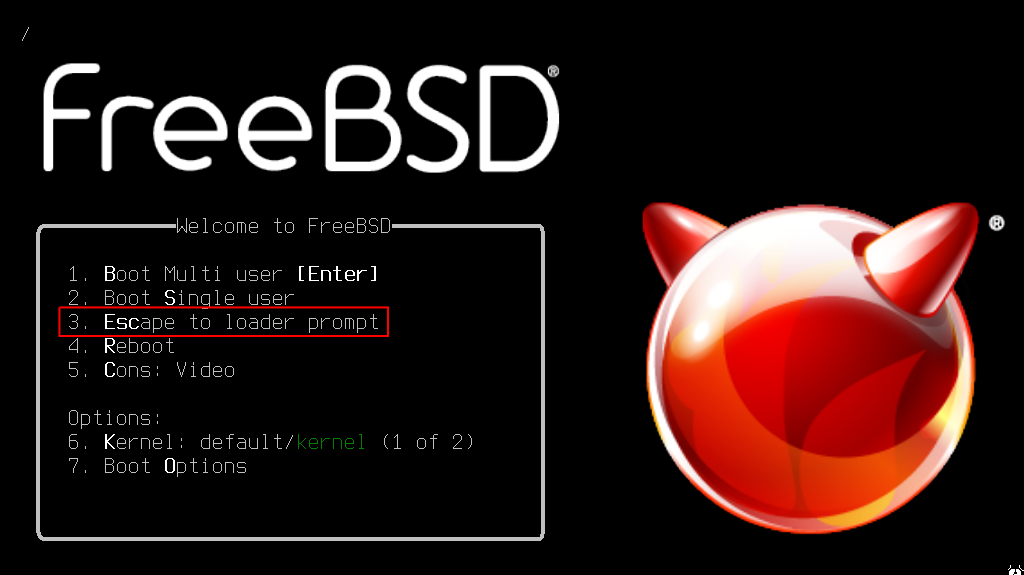Have you ever wondered if FreeBSD has a kernel? Well, the answer may surprise you. FreeBSD not only has a kernel, but it is an integral part of the operating system’s functionality. But what exactly is a kernel, and why is it important? In this article, we will dive into the world of FreeBSD’s kernel development service and explore its benefits, features, and development process. Whether you are a developer looking to optimize performance or a user seeking a more reliable operating system, understanding FreeBSD’s kernel will undoubtedly pique your interest. So, let’s unravel the mystery together and discover how FreeBSD’s kernel plays a crucial role in shaping the operating system’s capabilities.
Benefits of FreeBSD Kernel Development
When it comes to FreeBSD Kernel Development, there are numerous benefits that can greatly enhance the performance and functionality of your operating system. By leveraging the expertise of professionals in the field, you can ensure the efficiency and reliability of your kernel. These professionals have deep knowledge of the FreeBSD operating system and can create kernels that are optimized for performance. This optimization includes support for new hardware components, as well as code optimizations to improve overall system performance.
Another key benefit of FreeBSD Kernel Development is the ability to address bugs and security vulnerabilities. Professionals in this field can provide bug fixes and security patches to eliminate system crashes and safeguard against potential threats. Additionally, FreeBSD Kernel Development allows for the introduction of new features and functionalities, enhancing the capabilities of your operating system.
Features of FreeBSD Development Service
The FreeBSD Development Service offers a range of features to enhance the performance and functionality of your operating system. These features include new hardware support, performance optimization, bug fixes, security patches, and the introduction of new features or functionalities.
| Features | Description |
|---|---|
| New Hardware Support | Support for the latest graphics cards, network adapters, or storage devices |
| Performance Optimization | Optimization techniques to improve response times and resource utilization |
| Bug Fixes | Fixes to eliminate system crashes or unexpected behavior |
| Security Patches | Patches to safeguard against potential threats |
| Introduction of New Features or Functionalities | Addition of new features or functionalities to enhance the overall system capabilities |
FreeBSD Development Process
To kickstart the FreeBSD development process, you can rely on our experienced team to create a robust kernel that enhances your operating system’s efficiency, stability, and performance. Our FreeBSD development process incorporates the use of various tools and techniques to optimize the FreeBSD kernel, debug any issues, and ensure optimal performance and security.
We utilize a range of FreeBSD development tools to streamline the kernel development process. These tools enable us to efficiently configure and customize the kernel based on your specific requirements. We carefully analyze the existing kernel configuration and make necessary modifications to optimize performance and address any security vulnerabilities.
During the development process, we prioritize kernel optimization to ensure that your operating system runs smoothly and efficiently. We perform rigorous testing and debugging to eliminate any potential performance bottlenecks or stability issues. Our team is skilled in identifying and resolving kernel-related problems to enhance the overall performance of your system.
Additionally, we prioritize kernel security to safeguard your operating system against potential threats. We implement security patches and updates to address any vulnerabilities, ensuring that your system remains protected.
Kernel Configuration and Customization
For effective customization and configuration of the FreeBSD kernel, utilize the simple and readable configuration file format provided by FreeBSD. The kernel configuration file allows you to set/unset kernel options, include/exclude individual device drivers, include other config files, and set make(1) variables for the kernel build. It is recommended to include an existing config, such as GENERIC, and add overrides to focus on your own changes.
When it comes to writing kernel modules, FreeBSD allows for the use of loadable kernel modules to provide drivers and functionality not required in the main kernel configuration. These modules can be compiled separately and installed to the designated KMODDIR directory.
If you want to add out-of-tree modules to the FreeBSD kernel, you can do so by writing Makefiles without in-depth knowledge of make(1). This allows for custom functionality to be added easily with just a few variables set in the Makefile.
When customizing the FreeBSD kernel, it is best practice to use existing configurations and add overrides. Writing a kernel config from scratch is generally not recommended due to the number of config lines required. Understanding the purpose and implications of each customization is important before modifying the kernel.
In terms of Rust in the Linux kernel, it brings better security guarantees by default, preventing memory safety security bugs. Rust’s standard library allows for the use of alloc, which relies on heap memory. By providing an implementation of GlobalAlloc and registering it, custom allocators can be written for specific systems or kernels. Nightly Rust, the branch used for experimenting with new features, allows for the use of these features in low-level development. However, code written using Nightly Rust is not guaranteed to compile on future Rust releases.
Building Kernel Modules
When it comes to building kernel modules in FreeBSD, you can easily provide drivers and functionality not required in the main kernel configuration by utilizing loadable kernel modules. Here are some key points to keep in mind:
- Loadable kernel modules allow you to add drivers and functionality to the kernel without modifying the main kernel configuration.
- The sys/modules/ directory in the source tree contains the logic for building kernel modules, with each module having its own subdirectory.
- A module Makefile defines the module, its source files, and includes the necessary make(1) targets.
- Modules can be compiled separately and installed to the KMODDIR, which is set to /boot/modules by default.
When writing kernel modules in Rust, there are additional considerations:
- Rust provides better security guarantees through its memory safety features, reducing the risk of common memory safety security bugs.
- Rust’s alloc component allows for heap memory allocation, but an implementation of GlobalAlloc must be provided and registered.
- Nightly Rust offers experimental features, but they may change or be removed in future releases.
- While Linux has frameworks for building kernel modules in Rust, FreeBSD is still addressing memory management challenges in Rust kernel module development.
Out-of-tree Modules
Out-of-tree modules in FreeBSD allow for the integration of custom functionality into the kernel, providing flexibility and customization options beyond the main kernel configuration. There are several advantages to using out-of-tree modules in FreeBSD. Firstly, it allows for the addition of specific features or drivers that are not included in the main kernel. This can be useful for adding support for new hardware components or implementing custom functionality. Secondly, out-of-tree modules can be developed separately from the main kernel, making it easier to maintain and update them independently.
To implement out-of-tree modules in the FreeBSD kernel, developers need to write a Makefile for the module, specifying the module’s source files and make targets. The module can then be compiled and installed separately from the main kernel.
However, there are challenges in developing out-of-tree modules for FreeBSD. One challenge is ensuring compatibility with different versions of the kernel, as changes to the kernel’s internal APIs can break compatibility. Additionally, debugging and testing out-of-tree modules can be more difficult compared to built-in kernel modules.
There have been successful implementations of out-of-tree modules in FreeBSD. For example, the ZFS file system and the VirtualBox virtualization software both use out-of-tree modules to provide their functionality.
In the future, there are opportunities for further developments and improvements in out-of-tree modules in FreeBSD. This includes enhancing the development tools and documentation for building and maintaining out-of-tree modules, as well as addressing any compatibility issues that may arise.
Best Practices in Customizing the FreeBSD Kernel
To ensure efficient customization of the FreeBSD kernel, it is recommended to follow best practices that prioritize readability and minimize potential errors. Here are some suggestions for customizing the FreeBSD kernel:
- Use existing configurations as a starting point and add overrides: Writing a kernel config from scratch can be time-consuming and error-prone. By including an existing config, such as GENERIC, and adding overrides, you can reduce the chances of making mistakes and make future updates easier.
- Understand the purpose and implications of each customization: Before modifying the kernel, it is important to have a clear understanding of what each customization does and how it may impact the system. This will help prevent unintended consequences and ensure that the customization aligns with your goals.
- Avoid stripping unnecessary drivers unless necessary: While it may be tempting to remove unnecessary drivers from the kernel to reduce its size, it is generally not recommended unless you are building a specific, tightly controlled hardware environment. Removing drivers can introduce compatibility issues and limit the flexibility of your system.
- Stay up to date with security patches and bug fixes: Keeping your kernel up to date with the latest security patches and bug fixes is crucial for maintaining a secure and stable system. Regularly check for updates from the FreeBSD community and apply them promptly.








